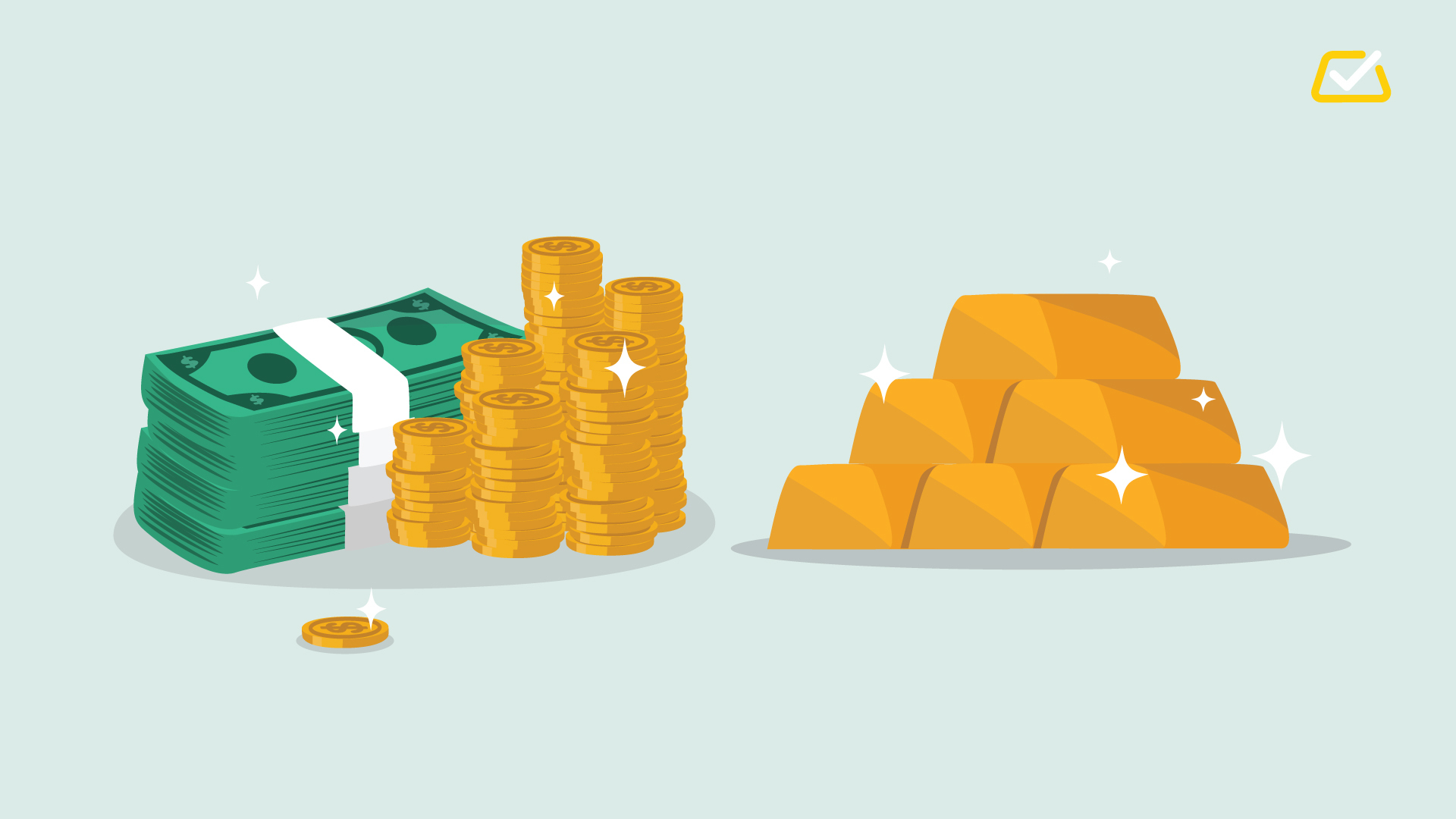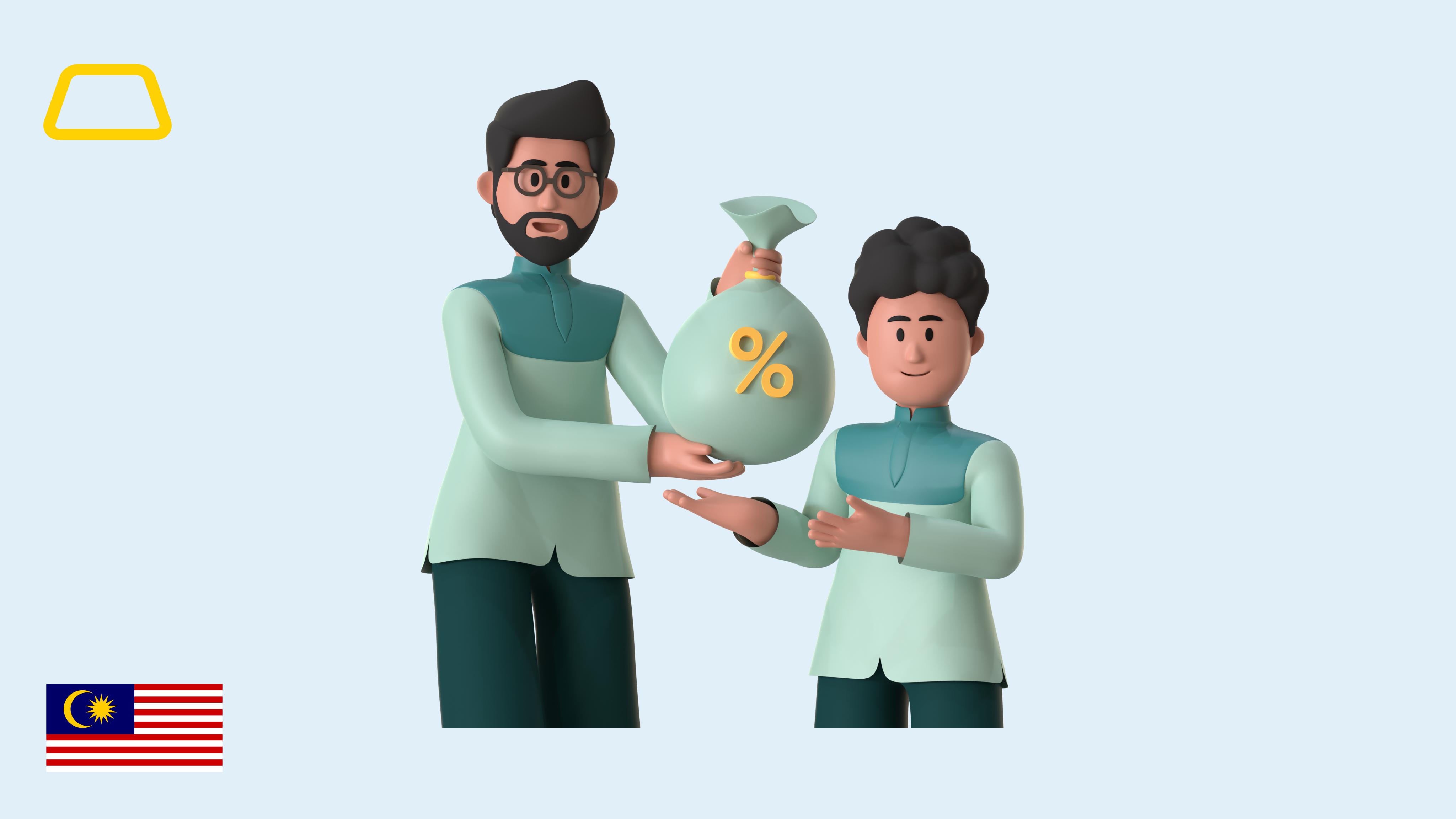The 5 Ways Zakat Can Cure A Broken Economy

There is a famous saying that goes:
Health is Wealth
In the society we live in today, there is almost no ailment that exists for which there is no medicinal cure. Be it a common cold, broken limbs, or serious chronic issues, we have created remedies, treatment plans and recovery schedules for almost anything that could happen to us.
But what about our actual wealth?
Our global economy is fundamentally broken.
The divide between the haves and have-nots has never been larger. Inflation is decimating people’s wealth and rising interest rates have created a spiralling cost of living crisis.
Politicians, business leaders and economists all over the world have their own ideas on how these solutions can be addressed, but Muslim Money Experts argues, that Zakat, a divinely obligated wealth tax, must be the cornerstone to any economic remediation.
Does the economy really work for everyone?
We’ve all heard about the American Dream:
The belief that anyone, regardless of where they were born or what class they were born into, can attain their own version of success if they work hard enough, in a society in which upward mobility is possible for everyone
But is this reality?
Whilst this dream has certainly been realised for a few individuals, many others are facing significant financial difficulties, and lack access to the resources they need to succeed, regardless of the effort they apply.
This has resulted in a growing divide between those doing well and those struggling, making it clear that the current economic system is not working equitably for everyone.
As noted in our previous article:
Since 2020, the wealthiest 1% have captured almost two-thirds of all new wealth – nearly twice as much money as the bottom 99% of the world’s population.
It is very quickly apparent then, that there is a massive issue. To fix this, it's imperative to take action and work towards building a more inclusive and just economy that benefits all members of society.
Enter Zakat.
What Is Zakat?
Zakat, one of the five pillars of Islam, is an obligatory act of giving a portion of one's wealth to help those in need. It serves as a means of purification of one’s wealth and a way to redistribute wealth and ensure social justice.
“The believers, both men and women, are guardians of one another. They encourage good and forbid evil, establish prayer and pay Zakat, and obey Allah and His Messenger. It is they who will be shown Allah’s mercy. Surely Allah is Almighty, All-Wise.” (Qur’an 9:71)
Zakat is a fixed percentage (2.5%) of a Muslim's accumulated wealth and assets, excluding their basic needs and debts. Muslims with wealth over a certain threshold (called Nisaab) must donate zakat annually to specified recipients, including the poor, the needy, and those struggling with debt.
How Zakat fixes the Economy
Individually, we look at how Zakat purifies our wealth, removes our attachment for the worldly life, and how we attain closeness to Allah, fulfilling an obligation that is made very clear for us.
But Zakat also has many macroeconomic benefits, most significantly is its potential to facilitate wealth circulation within an economy. By redistributing a portion of the wealth from the rich to the poor, Zakat reduces income disparities and helps maintain a balanced socioeconomic structure.
Here’s our view on why Zakat is the best medicine:
1. Zakat is the perfect financial safety net
A financial safety net is often a form of government intervention designed to assist individuals and families when they face financial difficulties. It provides a basic level of financial support during challenging times, such as emergencies or periods of need. Think of any wealth-related subsidies, housing benefits or cash supplements that are made available for those that really need it.
Zakat is the perfect financial safety net. Here’s why:
Targeted Assistance
Zakat directly supports individuals and families facing financial challenges by providing essential resources. The funds are distributed to specific categories of recipients, including the poor, needy, and debt-ridden, ensuring that those who need help the most receive targeted assistance.
Targeted assistance ensures that resources are allocated efficiently, making the most of available funds and support services. Concentrating on the most vulnerable or disadvantaged members of society helps reduce inequality and promote social justice.
Community-based Support
As a religious obligation, Zakat fosters a sense of empathy, social responsibility, and solidarity within the community. This communal aspect of Zakat, strengthens the support network available to those in need, encouraging people to look out for one another, and creating a more caring and cohesive society.
Self-sustaining System
Zakat is financed by the contributions of eligible Muslims, creating a self-sustaining system that does not rely on government funding or external aid. This sustainable approach ensures that the financial safety net remains viable and resilient, even during times of economic downturn or crisis.
Timely Assistance
Zakat is paid annually, providing a regular and predictable source of support for those in need. This timely assistance can help recipients maintain financial stability, preventing them from falling into a cycle of poverty or becoming reliant on long-term welfare.
Reduces Poverty
Zakat can lift people out of poverty by providing direct, financial assistance to those in need. It helps recipients afford basic necessities such as food, clothing, and shelter, improving their overall quality of life.
This support can also create a ripple- effect by enabling recipients to access education, healthcare, and skill development opportunities, empowering them to become more self-sufficient and contributing members of society.
2. Promoting Fairness
Zakat, as a divinely ordained form of wealth redistribution, stands apart from man-made taxes in its immunity to manipulation and its inherent fairness.
Taxes, subject to human laws and policies, are often influenced by political agendas and lobbying efforts from various industries or groups aiming to advance their interests. This can lead to tax loopholes, evasion, and unfair burden distribution among different segments of the population.
In contrast, the principles and rules of Zakat are clear and consistent. Unlike income taxes, Zakat is based on accumulated wealth rather than earned income. This distinction makes Zakat more equitable, as it targets those with a surplus of wealth rather than those with a high income but limited savings due to necessary expenses or debts.
For example, consider Adam and Khadijah. Adam earns a high income but has significant expenses to cover living costs for a family of five and medical bills for his mother, leaving him with limited savings. In contrast, whilst Khadijah has a more modest income, her expenses are low, so she has accumulated considerable wealth over time.
In a traditional income tax system, Adam would likely pay higher taxes than Khadijah due to his higher income, despite her having considerably more wealth. With Zakat, Adam wouldn't face an unfair tax burden, while wealthier Khadijah would contribute more to help those in need.
This basic example demonstrates how Zakat is a fair form of wealth redistribution as it considers an individual's basic needs and debts, only taxing wealth exceeding a specific threshold (nisab). It's calculated as a fixed percentage, making it proportional to wealth, ensuring a fair distribution. This creates a progressive system where the redistribution burden is shared fairly among those who can afford it.
Moreover, Zakat is a religious obligation for eligible Muslims, which fosters a sense of responsibility, empathy, and unity in the community. This spiritual motivation helps ensure that Zakat is consistently and dutifully fulfilled, minimizing the possibility of evasion or manipulation.
3. Fosters Social Unity
Zakat acts as a wealth equaliser by redistributing a fixed percentage of qualifying wealth from the more affluent to the less fortunate. By systematically transferring a portion of wealth to those who need it most, Zakat plays a role in narrowing the wealth gap and promoting a more equitable society. This wealth redistribution helps to reduce social tensions and foster greater social cohesion and harmony.
Zakat instills empathy, social responsibility, and solidarity within the community. This collective support can create a more caring and cohesive society, which, while good in itself, can also supercharge the economy.
This is because it fosters an environment where people are more likely to work together, support each other, and contribute to the common good. When people care for one another and work together, trust within the community is strengthened. High levels of trust can lead to more efficient collaboration, smoother transactions, and a greater willingness to engage in economic activities.
4. Encourages Productivity and Innovation
In Islam, hoarding wealth is strictly prohibited. One of the reasons for this is to encourage wealth to circulate.
“As for those who accumulate gold and silver and do not spend it in the way of Allah, give them the ‘good’ news of a painful punishment.” (Qur’an 9:34)
Holistically, Islam encourages trade and business to avoid hoarding. Zakat also discourages wealth hoarding by requiring individuals to pay a portion of their assets annually. There is also great wisdom in the calculation of Zakat (which is beyond the scope of this article) in that it is charged specifically on productive wealth.
Whilst there have been numerous studies which showcase the onerous effects a normal tax system places on innovation, often suppressing and stifling it, Zakat encourages individuals to invest their wealth productively, benefiting the economy.
When individuals invest their money, it contributes to the flow of capital in the economy, creating new business opportunities, generating employment, and fostering innovation. This increased velocity of money helps to stimulate overall economic growth, benefiting both individuals and the broader community.
The social cohesion fostered by Zakat also boosts productivity. When people feel supported and cared for, they tend to be happier, healthier, and more satisfied. This increases productivity and collaboration, as people are more motivated to excel and work towards shared goals.
5. Zakat Brings Barakah to the Economy
Often, when economic solutions are put forward to address various challenges, the spiritual dimension is overlooked. The spiritual health of the economy is just as important as its physical health. This is where barakah comes in.
Barakah is often translated as ‘blessings’, but it encompasses much more than that. Barakah is an intangible quality that brings unquantifiable increase and benefit to various aspects of life, such as wealth, without any apparent change in quantity.
“Had the people of those societies been faithful and mindful ˹of Allah˺, We would have overwhelmed them with blessings from heaven and earth.” (Qur’an 7:96)
Simply put, it's when something good gets even better in ways that can't be easily explained or measured. For example, when you give to charity, barakah can make your remaining money more valuable without increasing the amount itself.
“.. establish Salah, and pay Zakat, and advance to Allah a goodly loan. And whatever good you will send ahead for your own-selves, you will find it with Allah much better in condition, and much greater in reward. And seek forgiveness from Allah. Indeed Allah is Most-Forgiving, Very-Merciful.” (Qur’an 73:20)
Establishing Zakat naturally infuses the economy with barakah, which can have unappreciated and transformative benefits.
Closing Thoughts
In summary, Zakat has tremendous potential to address many of our current economic challenges. Zakat fosters a more balanced, inclusive, and prosperous economy by promoting fairness and social unity, boosting productivity and innovation, and creating a perfect financial safety net. Moreover, bringing barakah into the economy adds a spiritual dimension that can lead to unquantifiable benefits and improvements.
As Muslims, we have a unique opportunity to be flag-bearers for Zakat, and showcase its benefits to the rest of the world. By embracing and practising Zakat consistently, we can demonstrate its transformative power in addressing economic challenges and creating a more just and equitable society.
We need to take our Zakat obligations seriously as a community, not only for our personal spiritual growth, but also as a means to contribute to bettering the world around us. By doing so, we can inspire others to explore and appreciate the potential of Zakat in a more caring, cohesive, and prosperous global economy.
Risk Warning: Equity investments are not readily realisable and involve risks, including loss of capital, illiquidity, lack of dividends and dilution, and it should be done only as part of a diversified portfolio. Investments of this type are only for investors who understand these risks. You will only be able to invest in the company once you have met our conditions for becoming a registered member.
Please visit www.wahed.com/uk/ventures/risk for our full risk warning.
Risk Warning: As with any investment, a Wahed Invest Ltd investment puts your money at risk, as the value of your investment can go down as well as up. The tax treatment of your investment will depend on your individual circumstances and may change in the future. If you are unsure about whether investing is right for you, please seek expert financial advice.
Please visit www.wahed.com for our full terms and conditions
Maydan Capital Limited, trading as WahedX, is registered in England and Wales (Company No. 13451691), registered office: 87-89 Baker Street, London, W1U 6RJ, UK. Maydan Capital Ltd (FRN: 963613) is an appointed representative of Wahed Invest Ltd (FRN: 833225), an authorised and regulated firm by the Financial Conduct Authority.Wahed Invest Ltd. is registered in England and Wales (Company No. 10829012), registered office: 87-89 Baker Street, London, W1U 6RJ, UK and is authorised and regulated by the Financial Conduct Authority: FRN 833225.
Subscribe For More Islamic Finance Content
As with any investment, a Wahed Invest Ltd investment puts your money at risk, as the value of your investment can go down as well as up. The tax treatment of your investment will depend on your individual circumstances and may change in the future. If you are unsure about whether investing is right for you, please seek expert financial advice.
Wahed Invest LLC (Wahed) is a US Securities and Exchange Commission (SEC) registered investment advisor. Wahed Invest provides brokerage services to its clients through its brokerage partner Apex Clearing Corporation, a member of NYSE - FINRA - SIPC and regulated by the SEC and the Commodity Futures Trading Commission. Registration does not imply a certain level of skill or training. Wahed does not intend to offer or solicit anyone to buy or sell securities in jurisdictions where Wahed is not registered or a region where an investment practice like this would be contrary to the laws or regulations. Any returns generated in the past do not guarantee future returns. All securities involve some risk and may result in loss. Any performance displayed in the advertisements or graphics on this site are for illustrative performances only.
Disclaimer: Wahed Technologies Sdn Bhd ("Wahed") is a Digital Investment Manager (DIM) licensee issued by Securities Commission Malaysia (eCMSL/ A0359/2019). It is part of Wahed Inc. Wahed is authorized to conduct a fund management business that incorporates innovative technologies into automated portfolio management services offered to clients under a license issued pursuant to Schedule 2 of the Capital Markets Services Act 2007. All investments involve risks, including the possibility of losing the money you invest, and the track record does not guarantee future performance. The history of returns, expected returns, and probability projections is provided for informational and illustrative purposes, and may not reflect actual future performance. Wahed is not responsible for liability for your trading and investment decisions. It should not be assumed that the methods, techniques, or indicators presented in this product will be profitable, or will not result in losses. The previous results of any trading system published by Wahed, through the Website or otherwise, do not indicate future returns by that system, and do not indicate future returns that will be realized by you.
Wahed Invest Limited is regulated by ADGM’s Financial Services Regulatory Authority (“FSRA”) as an Islamic Financial Business with Financial Services Permission for Shari’a Compliant Regulated Activities of Managing Assets and Arranging Custody [Financial Permission No. 220065]. Our ADGM Registered No. is 000004971.
Wahed assumes no obligation to provide notifications of changes in any factors that could affect the information provided. This information should not be relied upon by the reader as research or investment advice regarding any issuer or security in particular. Any strategies discussed are strictly for illustrative and educational purposes and should not be construed as a recommendation to purchase or sell, or an offer to sell or a solicitation of an offer to buy any security. Furthermore, the information presented may not take into consideration commissions, tax implications, or other transactional costs, which may significantly affect the economic consequences of a given strategy or investment decision. This information is not intended as a recommendation to invest in any particular asset class or strategy or as a promise of future performance.
There is no guarantee that any investment strategy will work under all market conditions or is suitable for all investors. Each investor should evaluate their ability to invest long term, especially during periods of downturn in the market. Investors should not substitute these materials for professional services and should seek advice from an independent advisor before acting on any information presented. Any links to third-party websites are provided strictly as a courtesy. We make no representation as to the completeness or accuracy of information provided at these websites nor do we endorse the content and information contained on those sites. When you access one of these websites, you are leaving our website and assume total responsibility and risk for your use of the third-party websites.







